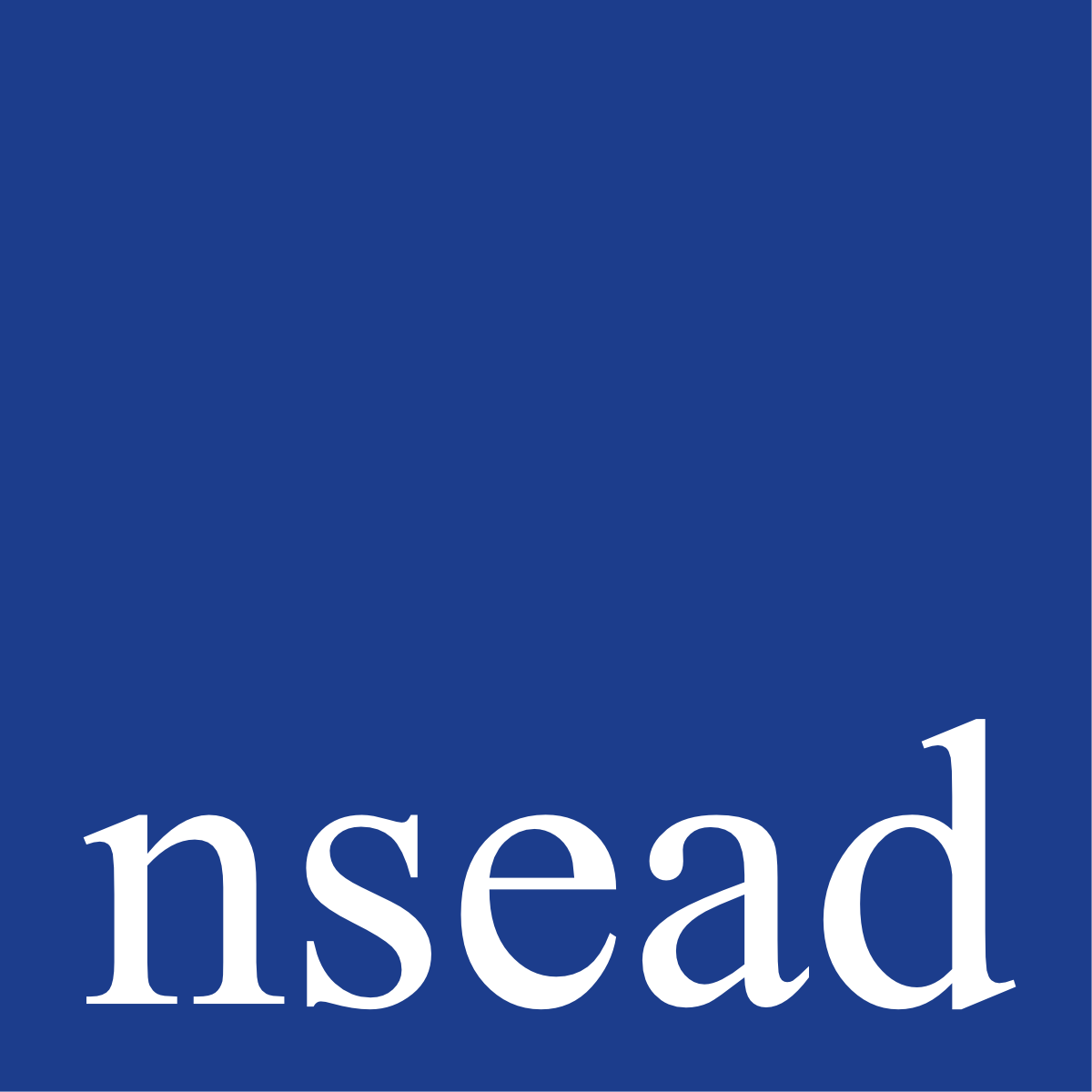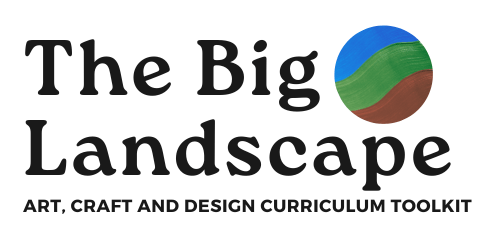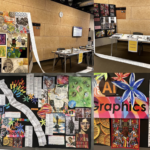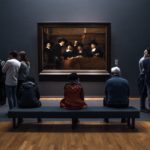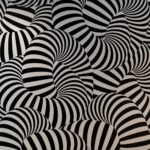This Page summarises the practical, theoretical, conceptual and disciplinary knowledgeDisciplinary Knowledge is what pupils learn about how art is studied, discussed and judged. relevant to artArt refers to a diverse range of human intellectual and expressive activities and the outcomes of those activities. Within this context art is further defined..., craftCraft can be designed as intelligent making. It is technically, materially and culturally informed. Craft is the designing and hand making of individual objects and... and designDesign shapes ideas to become practical solutions and propositions for customers and users. Design is all around us, everything man made has been designed. The....
As students create and make art and design, conceptual and technical knowledgeFacts, information, and skills acquired through experience or education; the theoretical or practical understanding of a subject. can be taught as principles, theories and rules, and acquired and applied experientially in projects and lessons.
They are sometimes described as the theoryA theory of art is intended to contrast with a definition of art. Traditionally, definitions are composed of necessary and sufficient conditions and a single counterexample... (as in colourChoices of colour and the relationships between colours have a huge influence on how a piece or art or design looks and feels and the... theory), or the rules (as in rules of compositionThe combination of a selection of distinct elements to work towards creating a whole image or form. The arrangement of shapes, colours, textures, marks and... or perspective) which define the knowledge and learning associated with particular ways of working or creating.
This knowledge can be acquired as factual knowledgeFactual knowledge refers to terms, facts, and detailed information that must be learned to understand a subject or solve a problem. Conceptual knowledge refers to classifications,..., for example, learning about the theory of colour, which becomes embedded before being more widely applied through experiential learningExperiential learning is the process of learning through experience, and is more narrowly defined as 'learning through reflection on doing'. Hands-on learning can be a... (Kolb, 1984) i.e. following colour matching and mixing activities where students learn about primary, secondary, and tertiaryTertiary colours are combinations of primary and secondary colours. There are six tertiary colors; red-orange, yellow-orange, yellow-green, blue-green, blue-violet, and red-violet. A tertiary color or... and complementary colours, tints and tones, warm and cool colours.
Learning these concepts as explicit knowledgeExplicit knowledge is knowledge that is straightforwardly expressed and shared between people. Explicit knowledge is knowledge that can be readily articulated, codified, stored and accessed. It... before makingThe process of making or producing something. The making of meaning is a decisively integral component of art-making. Meaning-making in relation to the creation of... it experiential can at times be helpful to develop understanding, particularly when applied in a project context, or before being embedded when practised as a skill.
This is what we mean when we describe ‘powerful’ knowledge' (Young, 2008). The knowledge associated with these concepts, processes and techniquesA procedure, formula or routine by which an outcome or artwork is achieved, to include weaving thread into cloth with a darning needle, carving wood... is powerful because they empower students to understand, apply and implement, becoming more skilful, confident and effective.
References
- Kolb, D. A. (1984). Experiential Learning: Experience as the Source of Learning and Development. Englewood Cliffs, N. J., Prentice-Hall.
- Meyer, J. H. F. and Land, R. (2003) Threshold Concepts and Troublesome Knowledge 1 – Linkages to Ways of Thinking and Practising in Improving Student Learning – Ten Years On C.Rust (Ed), OCSLD, Oxford
- Young, M. F. D. (2008). Bringing Knowledge Back In: From Social Constructivism to Social RealismAs an art movement, Realism refers to the social realism of 19th century painters like Gustave Courbet (1819-1877) and Honore Daumier (1808-1879). They preferred to... in the Sociology of Education. Oxford, Routledge.
- Perkins, D. (1999). The Many Faces of Constructivism, Educational Leadership, Volume 57, Number 3, November
- Francis. C. and Nicholls. J. Art Pedagogy
- JCQ. (2023) guidelines Instructions for conducting non-examination assessments
- NSEAD. (2023). Sketchbook Guidance
- NSEAD. (2023). Sketchbook Circle
- NSEAD. (2023). Finding creativeBeing creative or 'creativity' relates to or involves the use of the imagination or original ideas to create something. Careers
- ART UK. (2023). Examples of Art & Design selected from across Public Art Collections, UK
- The Creative IndustriesA range of economic activities concerned with the generation or exploitation of creative knowledge and information. The creative industries include advertising, architecture, radio and TV,... Council. (2023). Official Website
